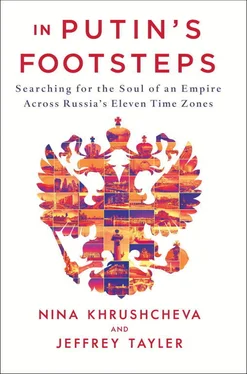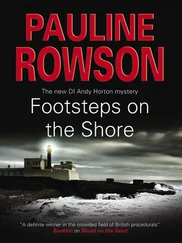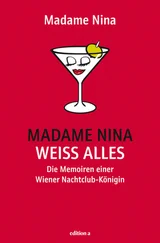He spoke at length about the Kaliningrad Oblast’s status as Russia’s paramount “strategic zone.”
“Do you believe that the Germans are really planning on invading?” we asked.
He did not, but he understood why the Russian government needed to send such a message—to instill in the oblast’s population a mind-set for potential confrontation, so that no one would be taken by surprise if the West did attack. This might seem like a far-fetched notion, but the dramatic deterioration of relations between the West and Russia following the outbreak of the Ukraine crisis, and the buildup of North Atlantic Treaty Organization (NATO) forces in the Baltic region, made it a justifiable concern for the Russian government.
Yet Maxim was disillusioned. Since the 2014 annexation, life had become so much more expensive in Kaliningrad that shopping for food in Poland was cheaper. The ports, once bustling with trade, were now less busy. If at times they were employed, it was for the purpose of impressing on German cruise ship passengers the purportedly formidable might of the Russian navy.
“Once the cruise ships dock,” Maxim told us, “a submarine, already retired from the fleet, surfaces within their view. The tourists don’t know it’s been retired. It’s just used to show off, to tell them, ‘See what Russia can do against your NATO!’ And the Germans are frightened,” he added with a chuckle, “and start taking pictures.”
Although Maxim only half believed in the threat supposedly emanating from NATO, an older taxi driver we later struck up a conversation with unquestionably did. “In Russia, with all the history we have had, why should we be afraid of NATO? Of the Germans?” he asked sarcastically. Such is the sentiment prevailing throughout Russia, as we would discover during our travels across the country’s eleven time zones. Fears dormant for two decades have been reemerging with the renewed volatility in relations with NATO countries. In a country thrice invaded from the West in recent centuries—the last time in 1941, within living memory of so many Russians—the scars of war are real, the fear of it is hard to appreciate for those living with a more peaceful past.
The Kaliningrad Oblast, home to almost a million people, is now about 80 percent ethnically Russian, yet its Russian identity seems more fragile than elsewhere in the country. Perhaps this derives from a profound sense of cultural dislocation: through a program of coercion and promises, after the war the Soviet Union encouraged its peasants from central Russia to relocate as urban dwellers to the newly obtained exclave by way of tax credits and internal passports. Peasants didn’t have such passports at the time, but urban dwellers did. They were also lured with a promise of comfortable homes and better supplies of food. Roughly 400,000 peasants moved to Kaliningrad between 1947 and 1950, to restart their lives and rebuild the city in the Soviet image.
Kaliningrad residents have since been taught to celebrate and, moreover, take credit for the legacy of a history that is not their own—for example, the fourteenth-century Königsberg Cathedral; the eighteenth-century philosopher Immanuel Kant; the famed Romantic writer E. T. A. Hoffmann, author of a fairy tale that the world-famous story “The Nutcracker” is based on, made even more famous by the ballet set to Pyotr Tchaikovsky’s music. Marvelous, these—but not all Russian.
The currently Russian Kaliningrad region, with so little of its own Russian history, strikingly manifests the split personality disorder afflicting the country as a whole. Nothing symbolizes this division more than the bicephalous eagle. The eagle is a vestige of the Russian Empire, which claimed to be the successor to the Byzantine Empire from which Russia adopted its Christian beliefs. The Soviet Union abandoned the bird after 1917, but it was revived again when the new Russia was searching its past for a new identity.
Following the fall of Byzantium in the fifteenth century, Russia, fortified with its new double-headed eagle emblem, began seeing itself as the Guardian of the True Faith, in opposition to “heretical” Rome-based Catholicism. The eastern and western churches had excommunicated each other in the Schism of 1054, an event that would have momentous consequences for Russia and its relations with the West. Russians dubbed their own capital, Moscow, the “Third Rome” (the first Rome having been Rome, the second Constantinople). After the collapse of the Soviet Union in 1991, the Russian Orthodox Church reemerged from the shadows. During the Soviet era, after initial persecution, the church was tolerated; in post-1991 Russia, it has been celebrated and recognized in the country’s otherwise secular constitution for the special role it had played in Russian history. As it had in bygone Byzantium, the double-headed eagle signifies Russian domination over a territory encompassing parts of both Europe and Asia. Russia’s borders, after all, extend from Kaliningrad in Europe to the Kamchatka Peninsula in Asia (on the Pacific Ocean) and Chukotka, just across the Bering Strait from Alaska.
In the Putin years, the eagle’s significance has come to rival that of the communist-era red star. The not-so-subtle idea behind the Byzantine connection is that Russia can (and should) exist only as a counterweight to the West; the West had troubled, often competitive relations with Byzantium just as it does now with Byzantium’s spiritual heir, Russia. Nowadays, more than ever before, the double eagle embodies the country’s split personality, the deep-rooted anxiety of a former superpower torn between the old and the new, between the past and present. We are Western, European , people told us in Kaliningrad, yet their behavior, both haughty and insecure, could not have been more Russian. They argue that Russia, a continent of its own, doesn’t need approval from abroad to prosper. Yet, simultaneously, they crave that approval.
In Kaliningrad a Western lifestyle has emerged, at least as residents understand it. They pass long hours in cafés and go on frequent shopping sprees to Poland. The “Westernness” of Russian towns and cities may be evaluated, to an extent, by the ease with which they have accepted the café culture of Europe—the sharing of leisurely moments over a cup of coffee, something less substantial than a meal or a drink. This, we would see, varies greatly from place to place. When, for example, people have disposable income in Tyumen (the capital of Siberian oil), they mostly spend it on furs, jewelry, and appliances; there, cafés are hard to come by. But in Kaliningrad—so close to the West and bearing a history that makes it Western—café culture exists, yet only in a superficial, inchoate form. Naturally, it has not cured the paranoid attitude of the authorities.
When asked how they feel about being Russian in this once so Prussian a city, the locals responded, “Well, Krym nash [Crimea is ours]!” In other words, “What we’ve taken we keep and make ours, by virtue of our strength, our military power; we took back Crimea, and we will not give it up!”
Many Russians indeed believe in their inherent ownership—97 percent of Crimeans voted for the annexation in March 2014; 88 percent of all Russians supported the move at the time, and in March 2018 the number is almost unchanged—86 percent. [13] 5 Alexei Levinson, “86% Za ‘KrymNash’” [86% Is for “Crimea Is Ours”], Vedomosti , April 3, 2018.
The takeover has not only pitted Ukraine and the West against Russia, it has also divided many families. Even Khrushchev’s son Sergei, Nina’s uncle, once said that for the Russians, the public referendum that supported Crimea’s takeover was as legitimate as throwing out Yanukovych was for the Ukrainians.
Читать дальше












